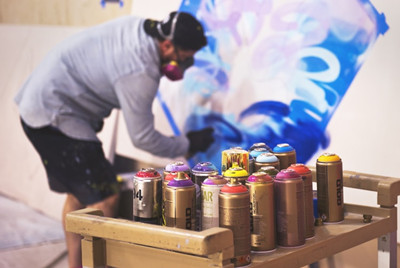
Alexander Buzaev, a young scientist at the TSU Faculty of Chemistry, is developing a photocatalytic coating for disinfecting indoor surfaces in hospitals, schools, kindergartens, and other institutions. The substance, which forms a very thin film without color or odor, could be used to protect against bacteria.
"The film-forming solution, which includes titanium dioxide and silver particles, will be the basis for the coatings," explains Alexander Buzaev, the author of the project. "In the dark, the coating is neutral, and its disinfecting properties are activated when exposed to light. Currently, there are analogs, but only in the form of vinyl sheets that can cover the walls or floor of the room. The spray is more advantageous because it forms films on surfaces of any geometry."
According to Buzaev, the substance that comprises the basis for the spray was developed by the Department of New Materials for the Electrical and Chemical Industries. It is not toxic and has already been tested on wood, glass and plastic surfaces. The effectiveness of the substance on bacteria is now 41 percent. As part of his project, the chemist plans to increase the efficiency of the solution to at least 90 percent. Along with this, he will work to ensure the prolonged action of the antibacterial coatings.
The finished product is intended for use in public sector facilities where there are many people and a high risk of infection: clinic corridors, hospital emergency rooms, kindergartens, school corridors and libraries. The spray can be applied to the walls and floor, and if necessary, on the surfaces of tables and chairs. The finest coating, from 20 to 100 nanometers thick, is invisible to the eye and will not dissolve in water during cleaning. After the expiration date, it can be washed off with an alcohol-containing liquid or a new layer can be applied without rinsing.
"With such coatings, the use of detergents can be significantly reduced or even completely abandoned," - says Alexander Buzaev. "In addition to disinfecting surfaces, the spray will also solve another problem by reducing the number of pathogenic bacteria in the air."

